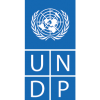About DSZ
Project's data
Budget
US$ 12,159,352
Duration
2020-2022
Projet’s goal
Zambia has strengthened democracy through functional and inclusive electoral processes that ensure the peaceful conduct of the 2021 elections and demonstrate heightened legitimacy and institutionalization of the multiparty system
Partners
- Electoral Commission of Zambia
- Ministry of Justice
- Zambia Law Development Commission
- National Assembly of Zambia
- Independent Broadcasting Authority
- Zambian National Women’s Lobby
- Zambia Police
- Zambia Centre for Interparty Dialogue
- Judiciary
- BBC Media Action
- MISA-Zambia
- Election Observer Groups
- Civil Society Organisations
Team
06
Sources of funding
European Union: US$ 7,045,800
UK (FCDO): US$ 667,557
Germany: US$ 578,264
Ireland: US$ 691, 210
Sweden: US$ 778,990
USAID: US$ 500,000
UNDP: US$ 600,000
Project Result Areas
- Results Area 1: Electoral Institutions and Processes StrengtheningZambian institutions have adequate capacity and policies to ensure inclusive, transparent, accountable and integrity-based democratic processes.
- Results Area 2: Programming for PeaceAdequate mechanisms are in place to ensure human security and mitigate conflict, so elections are conducted peacefully
Project Results
- Result 1: Decision making is more inclusive and participatory, and discrimination is reduced
- Result 2: Institutions are strengthened to be responsive and accountable, providing access and services
- Result 4: Technical and organizational capacities of national electoral stakeholders are strengthened
- Result 5: Credible and legitimate institutions work with integrity
- Result 6: Conflict prevention and mitigation mechanisms to support the peaceful conduct of elections are enhanced
Project's objective
Zambia has strengthened democracy through functional and inclusive electoral processes that ensure the peaceful conduct of the 2021 elections and demonstrate heightened legitimacy and institutionalization of the multiparty system
What we do
Democracy Strengthening Zambia Project uses the Electoral Institutions and Processes Strengthening approach is to support the achievement of the targets set by SDG 16+, which are in line with the 7 th National Development Plan. This programming strategy emphasizes long-term and holistic engagement to strengthen the core functions of democratic actors, institutions and processes to ultimately foster peaceful and inclusive societies at the basis of sustainable development. This governance strategy centres around developing clear, equitable and enforced ‘rules of the game’ for electoral processes with the goal of developing strong, empowered and independent democratic institutions able to deliver key political processes, including peaceful elections.
The approach seeks to improve coordination and build trust between electoral stakeholders. This affords improved ownership, cost efficiency and impact, but critically, seeks to constructively address a root problem of structural and operational issues that can erode the effectiveness and credibility of electoral processes. The multi-institutional approach encourages linkages and contributes to ensuring procedural certainty, restoring trust in institutions, facilitating meaningful participation and continuous dialogue between all stakeholders. With this focus the Electoral Institutions and Processes Strengthening approach aims to address many of the underlying causes of electoral violence.
While the Electoral Institutions and Processes Strengthening component, approach addresses many of the underlying causes of political violence, the Programming for Peace component of the Project focuses on ensuring human security and conflict mitigation of democratic processes across the electoral cycle. The Programming for Peace framework presents solutions relating to the prevention of electoral violence and conflict to support stakeholders in formulating conflict sensitive electoral conflict prevention programmes. A range of electoral conflict prevention activities have been developed, which can broadly be divided into (1) analysis and mapping; (2) monitoring and early response; (3) activity and training design.
Who we are
Takawira Musavengana
Senior Elections Advisor/ Programme Manager
Francisca Kabaso
Electoral Project Officer
Kafula Ng'andu
Project Driver
Scott Tembo
Project Officer (Monitoring, Evaluation and Knowledge Management)
Enelesi N. Sichimba
Finance/Administration Specialist
Ivwananji Namonje
Project Associate

